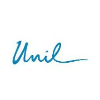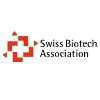Org. Setting and Reporting
The Independent Investigative Mechanism for Myanmar (IIMM) was established by the Human Rights Council in its resolution 39/2, adopted on 27 September 2018. The creation of the Mechanism was welcomed by the General Assembly in its resolution 73/264, adopted on 22 December 2018. The position is located in the Independent Investigative Mechanism for Myanmar, based in Geneva, Switzerland, within the Collection, Analysis and Sharing Section (CASS). The position will report to the Information Analyst (Open Source), P4.
Responsibilities
Within delegated authority, the incumbent will be responsible for the following duties: - Under the guidance of the supervisor, assists in the development of research and analysis strategies and conducts research to identify relevant evidence and open source information to support development of analytical products, organizes and synthesizes information that will advance the IIMM's investigations, responses to requests for assistance and case building activities; - Undertakes a preliminary review and analysis of information in English and Myanmar languages, including through the use of analytical software(s), and related analytical products in support of investigation relevant to crimes within the IIMM's mandate; - Under the guidance of the supervisor, gathers, collects, evaluates and analyses information to identify relevance, information gaps and/ or inconsistencies, and to inform decisions relating to investigative activities; - Maintains and updates the IIMM's internal databases and uses information management evidence processes and electronic information systems for the collection and preservation of information relevant for case file building and support of ongoing or future criminal investigations or prosecutions by national, regional or international courts or tribunals; - Participates in briefings and conferences with other IIMM personnel, as well as with actors external to the IIMM, including national investigative, prosecutorial and judicial authorities, civil society actors, UN entities and other partners relevant to collection and analysis of information and evidence; - Performs other duties as required.
Competencies
Professionalism: Strong analytical and evaluative skills. Knowledge and understanding of strategies and approaches for complex criminal investigations and building criminal case files. Ability to apply good judgment in the context of assignments given. Ability to plan own work, manage conflicting priorities and maintain flexibility as priorities evolve or change. Ability to maintain confidentiality and discretion in handling sensitive information. Ability to work under pressure including under tight time constraints. Ability to work in a high-tech environment. Shows pride in work and in achievements. Demonstrates professional competence and mastery of subject matter. Is conscientious and efficient in meeting commitments, observing deadlines and achieving results. Is motivated by professional rather than personal concerns. Shows persistence when faced with difficult problems or challenges; remains calm in stressful situations. Takes responsibility for incorporating gender perspectives and ensuring the equal participation of women and men in all areas of work. Teamwork: Works collaboratively with colleagues to achieve organizational goals. Solicits input by genuinely valuing others’ ideas and expertise; is willing to learn from others. Places team agenda before personal agenda. Supports and acts in accordance with final group decision, even when such decisions may not entirely reflect own position. Shares credit for team accomplishments and accepts joint responsibility for team shortcomings. Technological awareness: Keeps abreast of available technology. Understands applicability and limitations of technology to the work of the office. Actively seeks to apply technology to appropriate tasks. Shows willingness to learn new technology
Education
Advanced university degree (Master's degree or equivalent degree) in Asian Studies, conflict or security studies, information management, international criminal law, social science or related fields is required. A first-level university degree in combination with two additional years of qualifying experience may be accepted in lieu of the advanced university degree.
Job - Specific Qualification
Certification or training in intelligence analysis or open source analysis is desirable.
Work Experience
A minimum of two years of progressively responsible work experience involving the collection and analysis of information pertaining to serious human rights abuses (which may include corporate human rights compliance), international crimes, including war crimes, crimes against humanity or genocide is required. Work experience in the areas of social media monitoring and open source analysis is desirable. Work experience in intelligence or analysis related to Myanmar is desirable. Work experience in the areas of sexual and gender-based crimes and crimes against children is desirable. Work experience using analytical software is desirable. Work experience with an investigative, prosecutorial, or judicial institution/body at the national or international level is desirable.
Languages
English and French are the working languages of the United Nations Secretariat. For these positions, fluency in English is required. Knowledge of a Myanmar language such as Burmese, Kachin, Chin, Rakhine, Rohingya and/or Shan languages is desirable.
Assessment
Evaluation of qualified candidates may include an assessment exercise which may be followed by competency-based interview.
Special Notice
This temporary position is funded by extra-budgetary resources and is available up to 31 December 2025. The appointment or assignment and renewal thereof are subject to the availability of the temporary position or funds, budgetary approval or extension of the mandate. Pursuant to section 7.11 of ST/AI/2012/2/Rev.1, candidates recruited through the young professionals programme who have not served for a minimum of two years in the position of their initial assignment are not eligible to apply to this position. Subject to the funding source of the position, the eligibility for this temporary job opening may be limited to candidates based at the duty station. This temporary job opening may be limited to "internal candidates," who have been recruited through a competitive examination administered according to staff rule 4.16 or staff selection process including the review of a central review body established according to staff rule 4.15. Staff members of the United Nations common system organizations who will reach the mandatory age of separation or retirement within the duration of the current temporary need period are not eligible to apply. Submitting an application or selection for the current temporary job opening does not delay or increase the mandatory age of separation. Retirees above the mandatory age of separation who wish to be considered for the current temporary job opening must indicate the reason for their last separation as "retirement." Such retirees shall not be employed by the Organization, unless (a) the operational requirements of the Organization cannot be met by staff members who are qualified and available to perform the required functions; and (b) the proposed employment would not adversely affect the career development or redeployment opportunities of other staff members and represents both a cost-effective and operationally sound solution to meet the needs of the service. An impeccable record for integrity and professional ethical standards is essential. At the United Nations, the paramount consideration in the recruitment and employment of staff is the necessity of securing the highest standards of efficiency, competence and integrity, with due regard to geographic diversity. All employment decisions are made on the basis of qualifications and organizational needs. The United Nations is committed to creating a diverse and inclusive environment of mutual respect. The United Nations recruits and employs staff regardless of gender identity, sexual orientation, race, religious, cultural and ethnic backgrounds or disabilities. Reasonable accommodation for applicants with disabilities may be provided to support participation in the recruitment process when requested and indicated in the application.
United Nations Considerations
According to article 101, paragraph 3, of the Charter of the United Nations, the paramount consideration in the employment of the staff is the necessity of securing the highest standards of efficiency, competence, and integrity. Candidates will not be considered for employment with the United Nations if they have committed violations of international human rights law, violations of international humanitarian law, sexual exploitation, sexual abuse, or sexual harassment, or if there are reasonable grounds to believe that they have been involved in the commission of any of these acts. The term “sexual exploitation” means any actual or attempted abuse of a position of vulnerability, differential power, or trust, for sexual purposes, including, but not limited to, profiting monetarily, socially or politically from the sexual exploitation of another. The term “sexual abuse” means the actual or threatened physical intrusion of a sexual nature, whether by force or under unequal or coercive conditions. The term “sexual harassment” means any unwelcome conduct of a sexual nature that might reasonably be expected or be perceived to cause offence or humiliation, when such conduct interferes with work, is made a condition of employment or creates an intimidating, hostile or offensive work environment, and when the gravity of the conduct warrants the termination of the perpetrator’s working relationship. Candidates who have committed crimes other than minor traffic offences may not be considered for employment. Due regard will be paid to the importance of recruiting the staff on as wide a geographical basis as possible. The United Nations places no restrictions on the eligibility of men and women to participate in any capacity and under conditions of equality in its principal and subsidiary organs. The United Nations Secretariat is a non-smoking environment. Reasonable accommodation may be provided to applicants with disabilities upon request, to support their participation in the recruitment process. By accepting a letter of appointment, staff members are subject to the authority of the Secretary-General, who may assign them to any of the activities or offices of the United Nations in accordance with staff regulation 1.2 (c). Further, staff members in the Professional and higher category up to and including the D-2 level and the Field Service category are normally required to move periodically to discharge functions in different duty stations under conditions established in ST/AI/2023/3 on Mobility, as may be amended or revised. This condition of service applies to all position specific job openings and does not apply to temporary positions. Applicants are urged to carefully follow all instructions available in the online recruitment platform, inspira, and to refer to the Applicant Guide by clicking on “Manuals” in the “Help” tile of the inspira account-holder homepage. The evaluation of applicants will be conducted on the basis of the information submitted in the application according to the evaluation criteria of the job opening and the applicable internal legislations of the United Nations including the Charter of the United Nations, resolutions of the General Assembly, the Staff Regulations and Rules, administrative issuances and guidelines. Applicants must provide complete and accurate information pertaining to their personal profile and qualifications according to the instructions provided in inspira to be considered for the current job opening. No amendment, addition, deletion, revision or modification shall be made to applications that have been submitted. Candidates under serious consideration for selection will be subject to reference checks to verify the information provided in the application. Job openings advertised on the Careers Portal will be removed at 11:59 p.m. (New York time) on the deadline date.
No Fee
THE UNITED NATIONS DOES NOT CHARGE A FEE AT ANY STAGE OF THE RECRUITMENT PROCESS (APPLICATION, INTERVIEW MEETING, PROCESSING, OR TRAINING). THE UNITED NATIONS DOES NOT CONCERN ITSELF WITH INFORMATION ON APPLICANTS’ BANK ACCOUNTS.





























